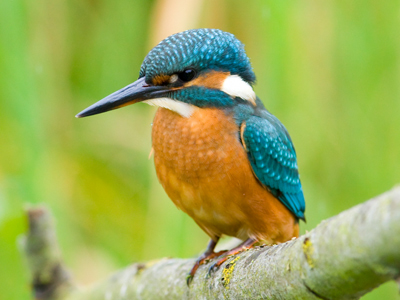
Etiquette in Islam
This quiz, Etiquette in Islam, looks at manners.
The teachings of Islam act as a mercy and a healing for the human soul, and such qualities as humility, sincerity, patience and charity are strongly encouraged. Additionally, Islam condemns pride and self-righteousness, since Almighty Allah is the only judge of human righteousness.
Islam also teaches that faith and action go hand-in-hand. God has given people free-will, and the measure of one’s faith is one’s deeds and actions. It has provided guidance in every sphere of life, from individual cleanliness, rules of trade, to the structure and politics of the society. Islam can never be separated from social, political, or economic life, since religion provides moral guidance for every action that a person takes. The primary act of faith is to strive to implement God's will in both private and public life.
“Allah is the Creator of all things and He is the Guardian and Disposer of all affairs.” (Quran 2:102)
The traditions of Prophet Muhammad (PBUH) remind us that humankind was put on this earth to be the custodian of God’s creation. Treating animals with kindness and mercy is just one of the responsibilities embedded in that custodianship. The Prophet (PBUH), said, “Whoever kills a sparrow or anything bigger than that without a just cause, Allah will hold him accountable on the Day of Judgement.” The listeners asked, “O Messenger of Allah, what is a just cause?” He replied, “That he will kill it to eat, not simply to chop off its head and then throw it away.”
Islam expects humankind to treat all animals (all living creatures - birds, sea creatures and insects) with respect and dignity. Prophet Muhammad continuously advised people to show kindness. He forbade the practice of cutting tails and manes of horses, of branding animals at any soft spot, and of keeping horses saddled unnecessarily. (Saheeh Muslim)
If the Prophet saw any animal over-burdened or ill-fed he would speak mildly to the owner and say, “Fear God in your treatment of animals.” (Sunan Abu Dawud)
The Prophet Muhammad (PBUH) said: “He is not a believer who eats his fill when his neighbour beside him is hungry.” (Al-Mundhiri)
“He does not believe whose neighbours are not safe from his injurious conduct.” (Saheeh Bukhari)
More than that, visiting the sick is a major responsibility that every single Muslim is duty-bound to fulfil. The Prophet Muhammad (PBUH) said: “The rights of one Muslim over another Muslim are six… When you meet him, you greet him with the salaam (i.e. to say: “As-Salamu alaykum”), when he invites you, you accept his invitation, when he consults you in a matter, you give him sincere advice, when he sneezes and praises God, you ask God to have mercy on him, when he is sick, you visit him, and when he passes away you accompany him (through his funeral).” (Sheeh Bukhari)
“A Muslim visiting his sick brother will continue to be in the harvest of paradise until he or she returns home.” (Saheeh Muslim)
Prophet Muhammad (PBUH) mentioned, “I and the person who looks after an orphan and provides for him, will be in paradise like this” putting his index finger and middle finger together. (Sahih Bukhari – Volumne: 30, Hadith: 6005)
Ready for more?
not all...
quizzers. Try to win a coveted spot on our Hall of Fame Page.







